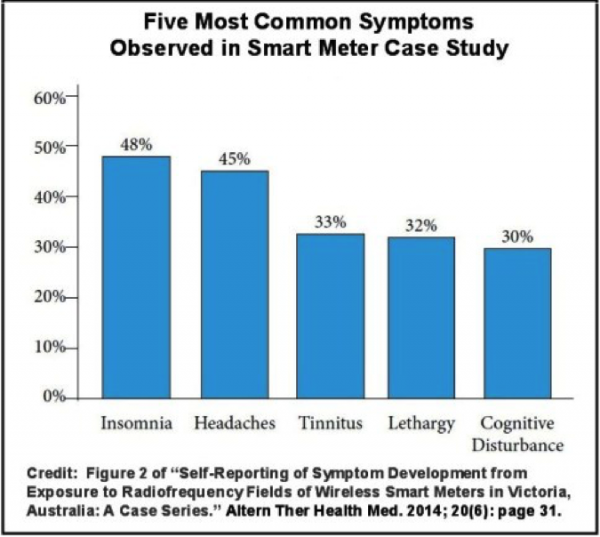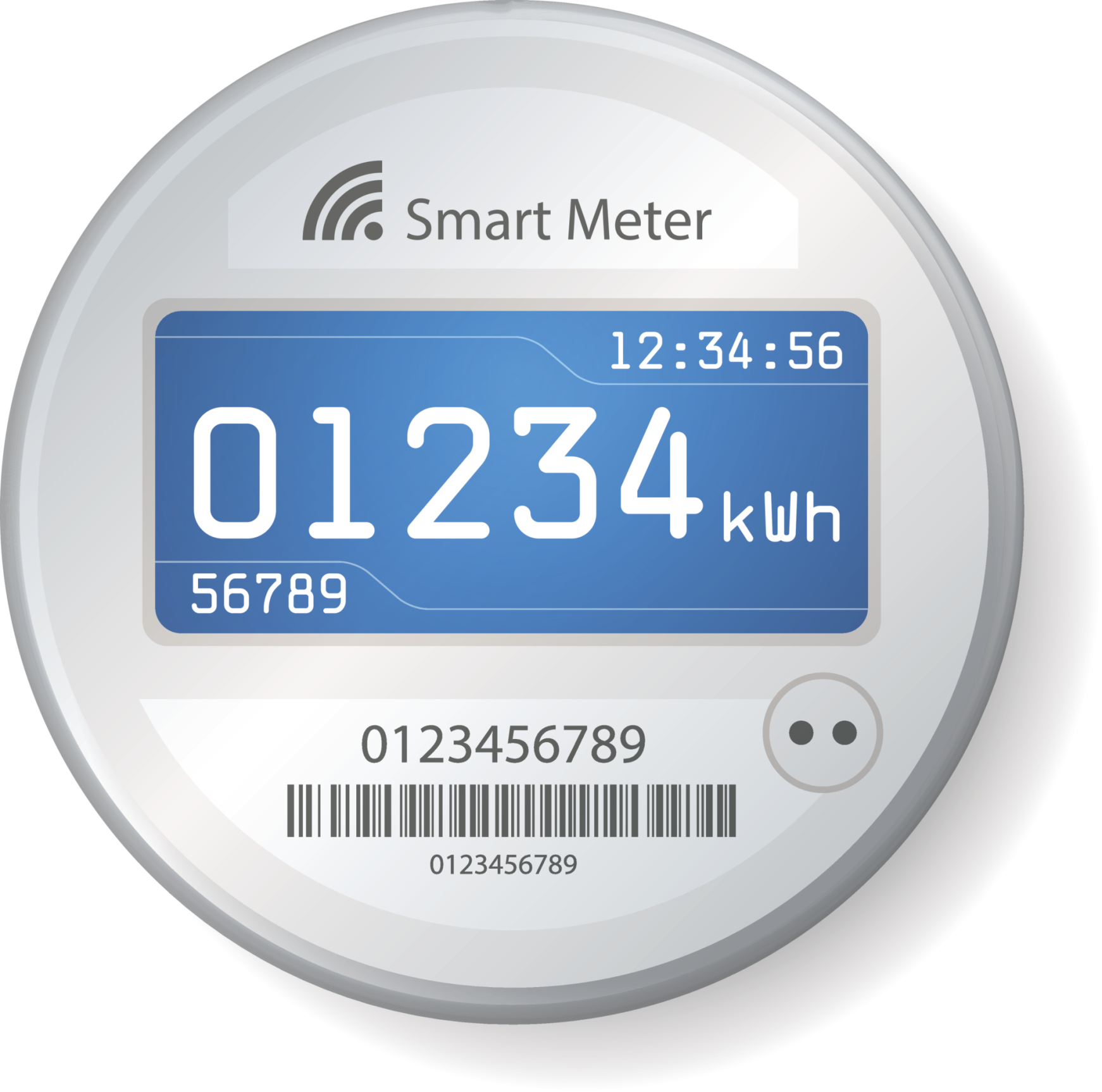As the huge and increasingly expensive smart meter rollout continues in many continents and countries across the world, there is now clear evidence that the ‘benefits’ of the controversial electro-magnetic radiation (EMR) emitting devices for consumers have been vastly overplayed, whilst the risks have been entirely underplayed.
In the UK, a particularly ambitious £1 billion mass rollout of electricity and gas smart meters is planned for 2016 with the installation of 7 million devices. However, it is believed the wider government plans on which the project depends, may spectacularly fail. The plans have to be accepted by industry players as well as the European regulators, and are at the mercy of continually changing specifications for both the hardware and government IT central communications system required for effective operation of the smart meters.
No health impact studies demonstrating safety of these wireless devices were undertaken prior to global rollout, but there have since been limited studies conducted that indicate that EMR exposure from these devices can detrimentally affect health.
Rollout update as 2016 begins
As 2015 drew to a close, news reports indicated that further smart meter rollout was planned in Norway, Holland, France, Denmark, Eastern Europe, the Asia Pacific countries, as well as in the UK. In Gauteng, South Africa, plans are underway to install smart prepaid electricity meters.
Meanwhile, in North America, deployment is now slowing down, whilst concern is most certainly not. In Victoria, Australia, smart meter installation was completed in all homes and businesses by June 2104. The Victorian Auditor-General's Office (VAGO) found that, despite a cost of of AU$2.2 billion, “only 80 percent of the benefits predicted originally are currently being realised”, and that there was “a real risk that the expected benefits will not be achieved”.
Not-so-smart UK
The UK government aims to have installed electricity and gas smart meters “in every domestic property in Great Britain by 2020”. The government has said installation is not obligatory, though citizens of other countries will need to check their rights where they live. The UK also plans to ‘force’ two million non-domestic premises to install the devices by then, too, including “small shops, schools and large businesses”. However, the latter organisations “can currently opt out of the scheme if they install lower-spec ‘advanced meters’ by April 2016”.
Yesterday, The Times reported that industry critic Alex Henny has described the project as a ‘ghastly mess’ that would not work and is a waste of money. Despite continuing promised benefits from smart meters, British Gas have reportedly admitted recently that consumer savings amount to a meagre £26 per year. Other energy-saving measures are said to be ‘far more cost effective’.
Of the 1.3 million smart meters already installed in the UK, 1 in 10 will be unable to function correctly until the associated central communications system is up and running later in the year. This is due to the incompatibility between the systems being used by different energy providers. Devices that have been installed in the first wave may need replacing altogether, along with many others which have been stockpiled awaiting installation.
The health risks of smart meters
More serious on the long list of smart meter issues of concern are the associated EMR health risks, which we have consistently highlighted. It was recently reported that the Maine Supreme Court was to “Hear Arguments Over Smart Meter Safety”.
After the completion of smart meter installation in Victoria, Australia in 2014, a case series article was published in Alternative Therapies in Health and Medicine, which evaluated information submitted by 92 of the residents, reporting “adverse health effects from wireless smart meters” via “an Australian public Web site using its health and legal registers”. The figure below shows the most common figures reported. Partially on the basis of this information, the American Academy of Environmental Medicine (AAEM) in 2013 “called for a moratorium on the deployment on smart meters in favor of using safer technology”.
[caption id="attachment_15754" align="aligncenter" width="600"] Symptoms developed after exposure to radiofrequency fields generated by wireless smart meters[/caption]
Symptoms developed after exposure to radiofrequency fields generated by wireless smart meters[/caption]
Smart meters are still being rolled out globally with no safety testing. The late, respected environmental activist, Dr Ilya Sandra Perlingieri, stated back in 2012 that, “We have been given no informed consent to this dangerous but invisible exposure” and nothing much has changed in the last 3 years. No wonder there is growing opposition to global smart meter rollout as more and more people become informed.
What you can do
Get informed and do your research before you agree to having a smart meter in your home. If you’re in the UK, you can still opt out by writing to your energy company.
Look up and make contact with your local group or groups opposed to smart meters, and find out about your rights to refuse or opt out, and the steps you would need to take.
Share information with your neighbours and local community, particularly if you live in terraced, conjoined housing or apartments
Keep up to date with developments, both local and global
Please like and share our posts, to help spread awareness and support the work we do








Comments
your voice counts
06 January 2016 at 4:17 pm
I had noticed that when sleeping (or not sleeping, to be more precise) with my head near electrical outlets, switches etc. I don't sleep. If I swing round through 180º in the bed so that my head is more in the centre of the room, I sleep better.
I originally read about EHS (Electromagnetic hypersensitivity) in a novel and checked it out on the internet. Surprise,surprise, the following week ANH had an eAlert on the subject.
I have taken to turning off the WiFi router at night and leaving my tablet in the other room. I sleep better.
I now see that tinnitus and lethargy could be associated. I have tinnitus, quite badly. Maybe it's associated?
My personal view is that if it's good for the corporation it probably isn't good for us.
06 January 2016 at 11:47 pm
This is an excellent article.
Below are some groups fighting against BC Hydro and FortisBC smart meters in British Columbia, Canada.
We are waiting to hear if we've been approved to go ahead as a Class Action Lawsuit against BC Hydro (- http://www.citizensforsafetechnology.org/CLASS-ACTION-Lawsuit-PACKAGE,2,3617).
BC SmartMeter Lawsuit.ca - http://bcsmartmeterlawsuit.ca/
Class Action Lawsuit Package - http://www.citizensforsafetechnology.org/CLASS-ACTION-Lawsuit-PACKAGE,2,3617
Coalition to Stop Smart Meters - http://www.stopsmartmetersbc.com/
Previous Updates - http://www.stopsmartmetersbc.com/newsletters/
(click on Newsletters above and choose month/year)
Facebook - Like & share our updates:
Coalition to Stop smart Meters - https://www.facebook.com/Coalitiontostopsmartmeters
&
Stop Smart Meters BC (Salt Spring) - https://www.facebook.com/pages/Stop-Smart-Meters-BC-Salt-Spring/207803029263762
Twitter - Follow & Retweet - https://twitter.com/StopSmrtMeterBC
EMR Health Alliance of BC - http://emrabc.ca/
For more microwave radiation concerns (cell phones, cell towers, EHS, smart meters, Wi-Fi, etc.) find & share more information:
- http://www.citizensforsafetechnology.org/
&
- http://parentsforasafeschool.blogspot.ca/
&
- http://www.safeinschool.org/
&
- http://www.c4st.org/
07 January 2016 at 7:09 am
I had a smart meter installed in Victoria Australia a year ago and when my Naturopath checked me for insomnia, waking each night at around 2 am and excessive need to go to the toilet during the night, she found major stress from radio frequencies. Since then I have covered my meters Arial each night with an earthed tin can and turned of all my Wi Fi in the home at night. I now sleep better until I forget to cover the antenna then I wake up again on that night.
Ian
10 January 2016 at 12:46 am
The roll-out of smart meters world-wide, without testing for health effects first, and allowing an opt-out that is only extremely partial at best, is the nail in the coffin of the idea that any of us live in any society other than a totalitarian one.
27 April 2016 at 9:37 pm
Does this mean that in rural Ontario where I live we could ask to have our smart meter taken out? If so what does this mean for our rates . Someone else I know in a rural area not far is paying 17 cents per kWh and that is 24 hours . We do everything to conserve and we have electric heat but don't want to see the bill increase. I have headache and insomnia issues always and wonder if it is because I sleep next to an outlet.
28 April 2016 at 10:07 am
Hi Hope,
Thank you for your comment!
This website contains some useful information on removing your smart meter: https://takebackyourpower.net/solutions/
Please do not hesitate to contact us if you have any further questions.
All the best,
Susie
19 May 2016 at 2:55 am
People need to know this and demand that City Councils that have imposed Smart meters on people and School Boards that have approved Wifi in Schools show proof of insurance coverage for personal injury!!!
In 1996 Swiss Insurance published a risk report and as of 2015, they no longer insure wireless of any kind for injury
1996 - Swiss Insurance - Electrosmog
2013 -Swiss Insurance - Emerging Risks
These risks are now Exclusion 32
“The Electromagnetic Fields Exclusion (Exclusion 32) is a General Insurance Exclusion and is applied across the market as standard. The purpose of the exclusion is to exclude cover for illnesses caused by continuous long-term non-ionizing radiation exposure.”
"'The Electromagnetic Fields Exclusion (Exclusion 32) is a General Insurance Exclusion and is applied
across the market as standard.
The purpose of the exclusion is to exclude cover for illnesses caused by continuous long-term non-ionising radiation exposure.
We will not;
a) make any payment on your behalf for any claim, or
b) incur any costs and expenses, or
c)reimburse you for any loss, damage, legal expenses, fees or costs sustained by you,
d) pay any medical expenses: directly or indirectly
arising out of, resulting from or contributed to by electromagnetic fields,
electromagnetic radiation, electromagnetism, radio waves or noise.”
That likely means that School Boards that have put wireless in schools and Cities and Municipalities that have voted in Smart Meters are not insured for "injury to health".
So who is liable?
Your voice counts
We welcome your comments and are very interested in your point of view, but we ask that you keep them relevant to the article, that they be civil and without commercial links. All comments are moderated prior to being published. We reserve the right to edit or not publish comments that we consider abusive or offensive.
There is extra content here from a third party provider. You will be unable to see this content unless you agree to allow Content Cookies. Cookie Preferences